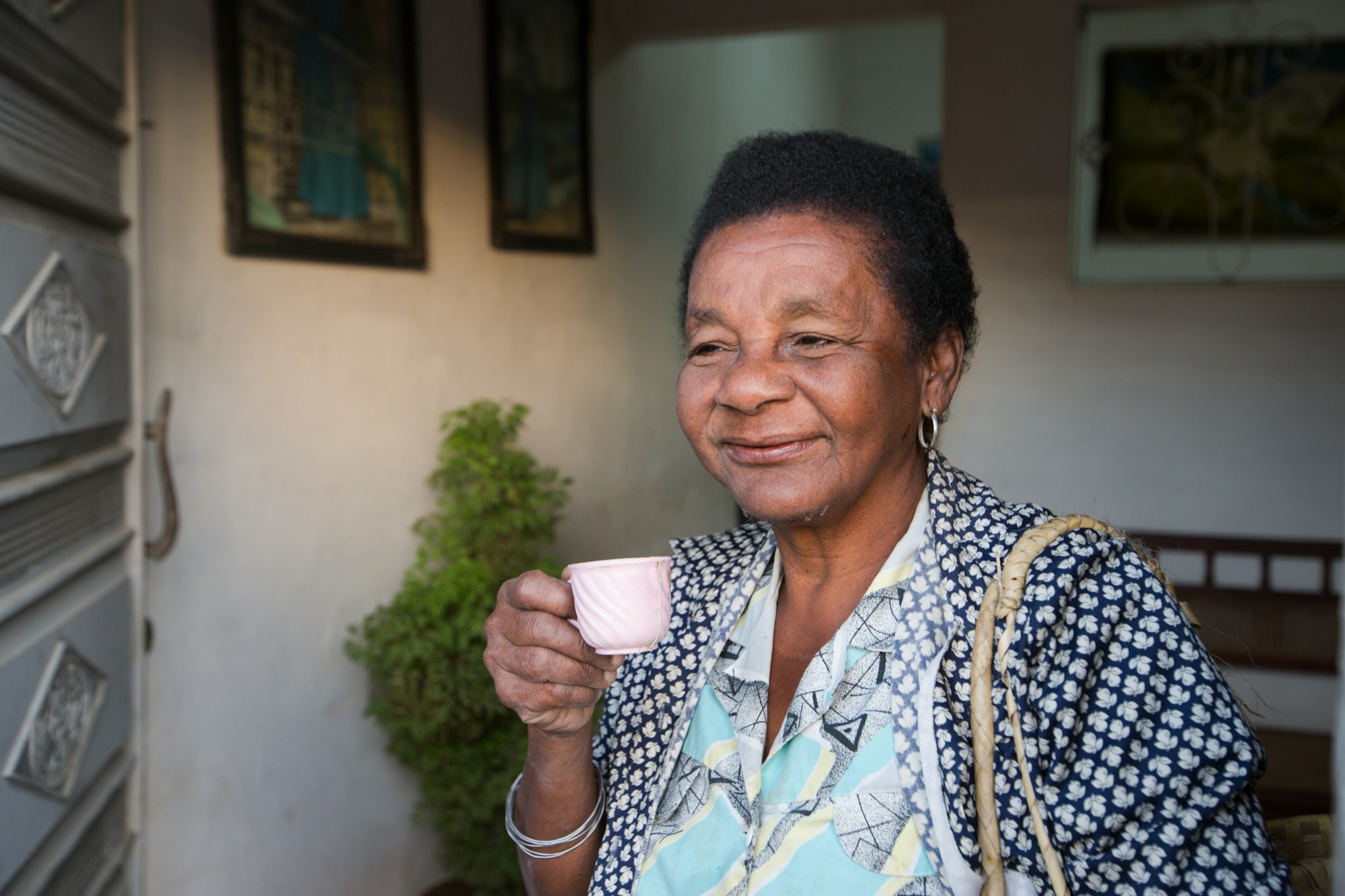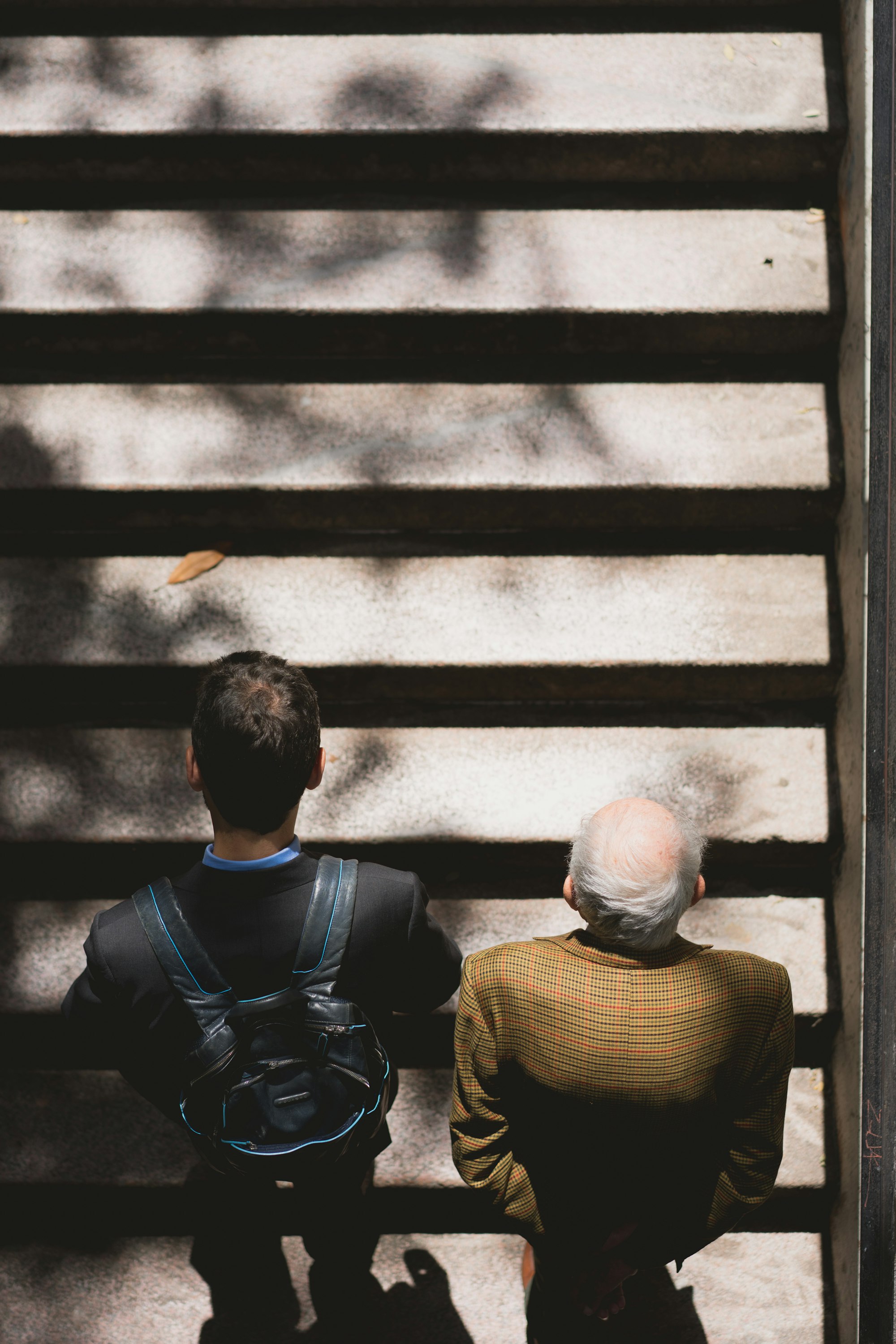
This author gets the perfect lesson in what it means to be useless and useful as we age
Dear Reader: This isn't a treatise about all the ways older folks can be valuable. Just a personal observation based on experience which may or may not be helpful. Rather than worry about changing the world, I'm concentrating far more on how to be of service one person at a time. Perhaps that is the real lesson. I'm still learning.
Before leaving Medium for good (although I do sneak peaks on new comments), I stumbled across a new publication called Boomers, Bitches and Babes. The opening shot is of a Gen Z woman which was confusing at best.
I read one story, written by a woman my age or thereabouts.
She complained bitterly about "kids these days," and went on a lengthy harangue worthy of a fishwife with hemorrhoids. Not a grandmother I'd want to visit.
Such attitudes, mixed with mindless advice about not drinking Starbucks coffee and putting it away to someday be rich (advice taken out of context but made famous anyway, in that way of social media), don't foster respect. And they add to the feeling that older people are a drag on society, costing more than they are worth.
In some cases they are possibly right, although there are plenty of folks of all ages who fall into that category. But this article is about aging folks, which includes this author, and whether or not we older folks still bring value. Every generation asks.
As with all things.
A beloved uncle told me that the "secret to success is a job for 40 years and you retire with a pension." That was fifty years ago. Even in 1983, the days of corporate takeovers and layoffs, that advice was museum-quality.
The same is true now. What is true for a Millennial bears no relationship whatsoever to the forces which shaped my financial life, or rather the lack thereof.
That's why when a Boomer or even a Gen Xer lays out useless advice to Millennials or Z-ers, it's embarrassing. Conditions even five years ago, pre-Covid, are ancient. With banks in turmoil and hundreds of thousands getting laid off, how many Uber and Lyft drivers can any one city support?
It's hard to save when you already have four side hustles and still can't pay the rent.
So where do we find a role? If our financial advice is rendered useless nearly by the day and gender roles are shifting by the hour and we hardly know our own kid's chosen pronouns, what are we useful for?

Yesterday I called a good friend. One of his grandmothers was in trouble. She lives in the remote Southwest, close to ninety, not in command of all her faculties and is in danger of needing to be institutionalized.
The mess is considerable. She desperately needs intervention. This is a grandmother who, under different circumstances some years ago, had occupied a beloved place in his world.
Now she appears to have gone completely off the rails. Or close to it. Endangered herself with some poor decisions and may well be the victim of elder abuse.
I am much closer to her age than he is, and I have also nearly gone off the rails myself but for different reasons. He was in a state about her.
We spent the first twenty minutes of his lunch hour discussing what he knew, the situation as he understood it. When we'd walked through all that we took a detour through his work. There he felt more confident, competent and capable. I could hear the stress bleed off. There really was little to be done until another family member reached his grams and could make an assessment.
At that point, there could be a game plan. Until then, no amount of upwards spiraling would help.
When we got to the end of his lunch hour plus ten, we'd walked through some work ideas, discussed a couple of books which might be very helpful for him as well as his partner, and he sounded calmer.
I asked him if he felt better.
I wanted to hear him say it just to own it. That locks it in.
Look, I'm not all that and a bag of chips. But I do know stress, spiraling and feeling unable to get my feet underneath me. I've had plenty of practice having to find my equilibrium. THIS is one area where we can be so very valuable.
Sometimes the most important thing we can do is offer a safe harbor where someone can wail and cry and worry, make a hug safe as a padded room, without judgment. Just be present. When you're old enough you also know that sometimes silence is the best conversation, when held by someone you love.
It's not as bad as we imagine much of the time. Sometimes it's worse.
Most older folks have been through those ringers already, and that is precisely why we need them. Those are the "granny guardrails" we grab when life threatens to toss us overboard.
Much emotional advice is, for we humans are achingly predictable. When it comes to emotions, life, aging and the everyday aspects of our species, we are terribly consistent. In the best and worst ways.
Often all we need is an example.
Tribal elders are valued as the keepers of the stories. While each tribal custom will vary, and what is valued might also be different, elders hand down the essentials from generation to generation.
Perhaps our real value is knowing when to step in and when to shut up. Knowing how to step in and how to step back. For being just enough is also an art form, for anything beyond that can get in the way of someone else's growth.
Those skills only come with time, horrible mistakes, faceplants and the occasional win. They come with age. The price we pay is evident in our faces and on our bodies.
Old folks might be old fogies. That's different from being interested and engaged and learning, which happens all our lives, if we're wise. That keeps us youthful, but it also keeps us relevant.
During Covid, many families were forced into intergenerational households. Here's that story:
This is good for the young and old alike for all the same reasons that tribes kept their elders around. There is plenty of strife, and those come with family. However when kids see elders living full lives and are important to the family, they grow up unafraid of being old and in the way.
They experience the elderly as has having a critical role, including teaching us how to die. That may be hard but we have to learn to do it. Not facing our mortality robs us of learning how to live.
To my mind, intergenerational living is one of the better side effects of Covid. The report explained:
The overwhelming majority of Americans living in a multigenerational home (98 percent) say their household functions successfully, citing various factors that contribute to the success, many of which fall into three categories further delineated in the report: family relationships and interactions, home design and supports and services. (author bolded)
Familiarity with the aging takes away the unholy terror we have of getting older. Of dying.
We are necessary and we are needed. We can have a huge role in society, especially when we stop wasting time trying to be younger and relax into the remarkable role that age- a well-lived and richly varied life- can afford us. It's earned. Respect is earned, too. How we live, how we age, and indeed, how we die are all part of what we teach.
These days the quaint idea of respect for your elders is under attack just like everything else. We who are older don't deserve respect simply because of our age. We need to continue to earn that regard. That's not such a bad thing at all.
In other words, we gotta keep right on working at being life, being a part of the community, and being relevant.

Comments powered by Talkyard.